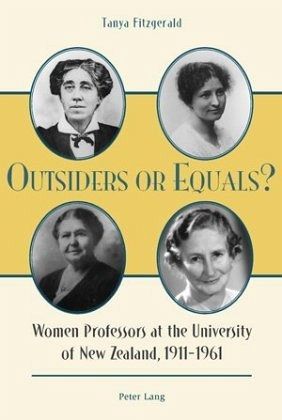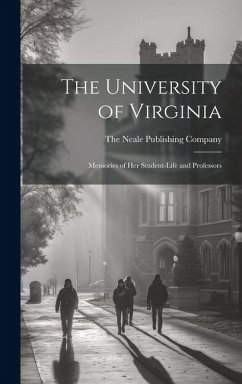
Outsiders or Equals?
Women Professors at the University of New Zealand, 1911-1961
Versandkostenfrei!
Versandfertig in 6-10 Tagen
56,95 €
inkl. MwSt.

PAYBACK Punkte
0 °P sammeln!
Shortlisted for the Anne Bloomfield Prize 2010Across the ninety years of its history, the University of New Zealand (1871-1961) appointed four women professors to the academic staff. From the outset, while the 'woman professor' was an insider to the Academy based on her qualifications and professional credentials, on the basis of her gender she was a relative outsider to this deeply patriarchal institution. Accordingly, academic women, and in particular this first generation of women professors, were officially invisible both to their (male) colleagues and to the institution. This is not to su...
Shortlisted for the Anne Bloomfield Prize 2010
Across the ninety years of its history, the University of New Zealand (1871-1961) appointed four women professors to the academic staff. From the outset, while the 'woman professor' was an insider to the Academy based on her qualifications and professional credentials, on the basis of her gender she was a relative outsider to this deeply patriarchal institution. Accordingly, academic women, and in particular this first generation of women professors, were officially invisible both to their (male) colleagues and to the institution. This is not to suggest that the presence of a 'woman professor' was unproblematic or that she sat easily on the margins of men's scholarly worlds. This book traces the personal and professional histories of each woman professor and examines their contribution to the expansion of higher education for women. On the basis of extensive archival research in New Zealand, England and the United States, the author uses Bourdieu's notions of 'habitus', 'field' and 'capital' to analyse this intellectual community of women and the professionalisation of academic work. The book rehabilitates the 'woman professor' from the margins of historical scholarship and offers an insight into a forgotten aspect of the history of women's higher education: the history of women and the professoriate.
Across the ninety years of its history, the University of New Zealand (1871-1961) appointed four women professors to the academic staff. From the outset, while the 'woman professor' was an insider to the Academy based on her qualifications and professional credentials, on the basis of her gender she was a relative outsider to this deeply patriarchal institution. Accordingly, academic women, and in particular this first generation of women professors, were officially invisible both to their (male) colleagues and to the institution. This is not to suggest that the presence of a 'woman professor' was unproblematic or that she sat easily on the margins of men's scholarly worlds. This book traces the personal and professional histories of each woman professor and examines their contribution to the expansion of higher education for women. On the basis of extensive archival research in New Zealand, England and the United States, the author uses Bourdieu's notions of 'habitus', 'field' and 'capital' to analyse this intellectual community of women and the professionalisation of academic work. The book rehabilitates the 'woman professor' from the margins of historical scholarship and offers an insight into a forgotten aspect of the history of women's higher education: the history of women and the professoriate.












